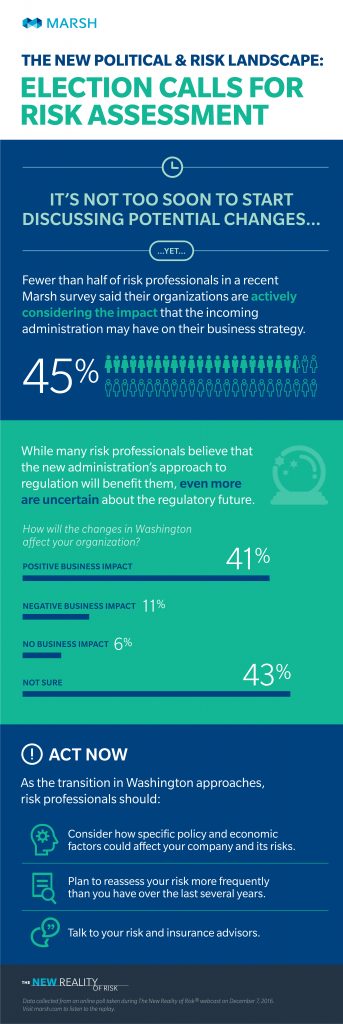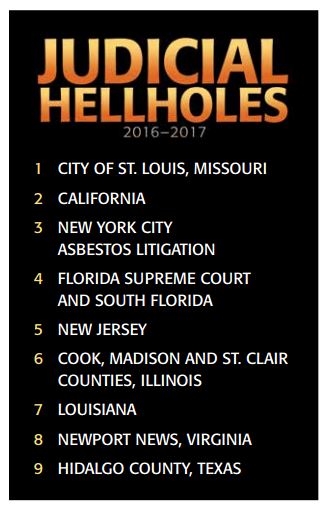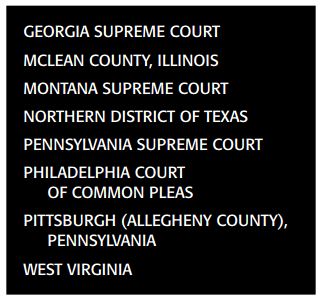



A driving effort to save the state money was said to be the reasoning behind the Flint, Michigan water crisis, which has been tied to lead poisoning in children, among other issues. On Tuesday the state announced felony charges against former state emergency managers, Darnell Earley and Gerald Ambrose, accused of false pretenses and conspiracy to commit false pretenses. The two were said to have been focused on balance sheets rather than the welfare of citizens when they made the decision in 2014 to switch the city’s water supply from treated water in Lake Huron to water from the Flint River.
A state investigation, which began in January, had led to charges against eight state officials and an employee of the Flint water facility.
According to the New York Times:
Charges of false pretenses, conspiracy to commit false pretenses, misconduct in office and willful neglect of duty lodged against the former managers were lauded by Flint leaders, some of whom said they had feared that blame for the city’s contaminated water might ultimately be pinned only on low-level workers.
The claims also reopened a longstanding debate in Michigan over the state’s emergency management provision, reviving questions about whether the system removes power and control over local issues from those residents who come under state oversight.
For years, governors here have appointed emergency managers as a way to efficiently cut debts and restore financial stability in the most troubled cities. But residents of some majority-black Michigan cities, including Flint, argue that the intense state-assigned oversight disenfranchises voters, shifts control from mostly Democratic cities to the state’s Republican-held capital and risks favoring financial discipline over public health.
After the decision was made to use water from the Flint River, Flint residents had began to notice a peculiar odor, color and taste in the water that flowed from their taps. Some reported skin rashes, hair loss and other physical problems. But they did not know why. Water from the Flint River was used by Flint residents for 18 months, but because it was not treated to reduce corrosion, lead from old plumbing leached into the water. Testing revealed dangerous levels of lead.
Residents soon discovered they had been lied to. Public officials had known about the lead but kept quiet. As a result, between 6,000 and 12,000 children were exposed to the contaminated water, which will likely have serious consequences for their health.
Meanwhile, efforts to fix the problem are underway. State officials switched back to the original water source in October. Michigan Gov. Rick Snyder has estimated that replacing the more than 15,000 lead service lines in Flint would take $60 million and up to 15 years.
With a new president in office in 2017, there are sure to be changes ahead for businesses in the United States. Yet of risk professionals surveyed, fewer than half are actively preparing. Organizations are expected to see impact in areas including regulation and enforcement strategies, a new national trade policy, and a potential rollback of Affordable Care Act (ACA) provisions, according to Marsh.
Speakers on Marsh’s webcast, The New Reality of Risk, noted that the new administration appears to favor deregulation across several industries including financial services, although a complete repeal of the Dodd-Frank Wall Street Reform and Consumer Protection Act is unlikely, said Arthur Long, a partner at Gibson, Dunn & Crutcher LLP. The Trump administration is also expected to reduce regulation in the energy industry and others.
Areas to watch, according to the webcast:
Although uncertainty remains about many specific policy changes to be made under the new administration, businesses should be thinking about the potential effects of new policies on their operations. Among other steps, businesses should:

This year’s Judicial Hellholes report, published by the American Tort Reform Association, identifies nine “hellholes” in light of changes in the U.S. state court system, the types of cases being seen and the courts’ balance between defendants and plaintiffs.
The top nine judicial hellholes are:
 And if that isn’t enough, the report also includes a “Watch List,” calling attention to eight additional jurisdictions “that bear watching due to their histories of abusive litigation or troubling developments.” Those are:
And if that isn’t enough, the report also includes a “Watch List,” calling attention to eight additional jurisdictions “that bear watching due to their histories of abusive litigation or troubling developments.” Those are:
 But the news isn’t all bad. The report examines “Points of Light,” which are examples of “fair and balanced judicial decisions that adhere to the rule of law and respect the policy-making authority of the legislative and executive branches.” Highlights include positive court rulings from 11 states.
But the news isn’t all bad. The report examines “Points of Light,” which are examples of “fair and balanced judicial decisions that adhere to the rule of law and respect the policy-making authority of the legislative and executive branches.” Highlights include positive court rulings from 11 states.
These courts made it easier to dismiss groundless claims, tougher to bring junk science into court, gave juries a more accurate understanding of how injuries occurred in auto accident cases, and reduced the potential for inflated damage awards. Courts also confirmed that a state attorney general can dismiss meritless cases brought on behalf of the state, but can’t hand the state’s law enforcement power to private contingency fee lawyers.
The report also points out that there are a staggering number of new laws on the books for companies to keep track of. In fact, since 2010, there was an average of 827 new laws annually in California alone.
From 2010 through 2015, lawmakers in Sacramento managed to tack onto the books an annual average of more than 800 new laws. In 2016, they added another 893, at least some of which (see SB 859, SB 1063, SB 1130, SB 1150 and SB 1241) were designed primarily to foment still more litigation and related costs that for many years have helped drive businesses, along with their jobs and tax revenues, into the arms of less litigious states across the country and around the globe.